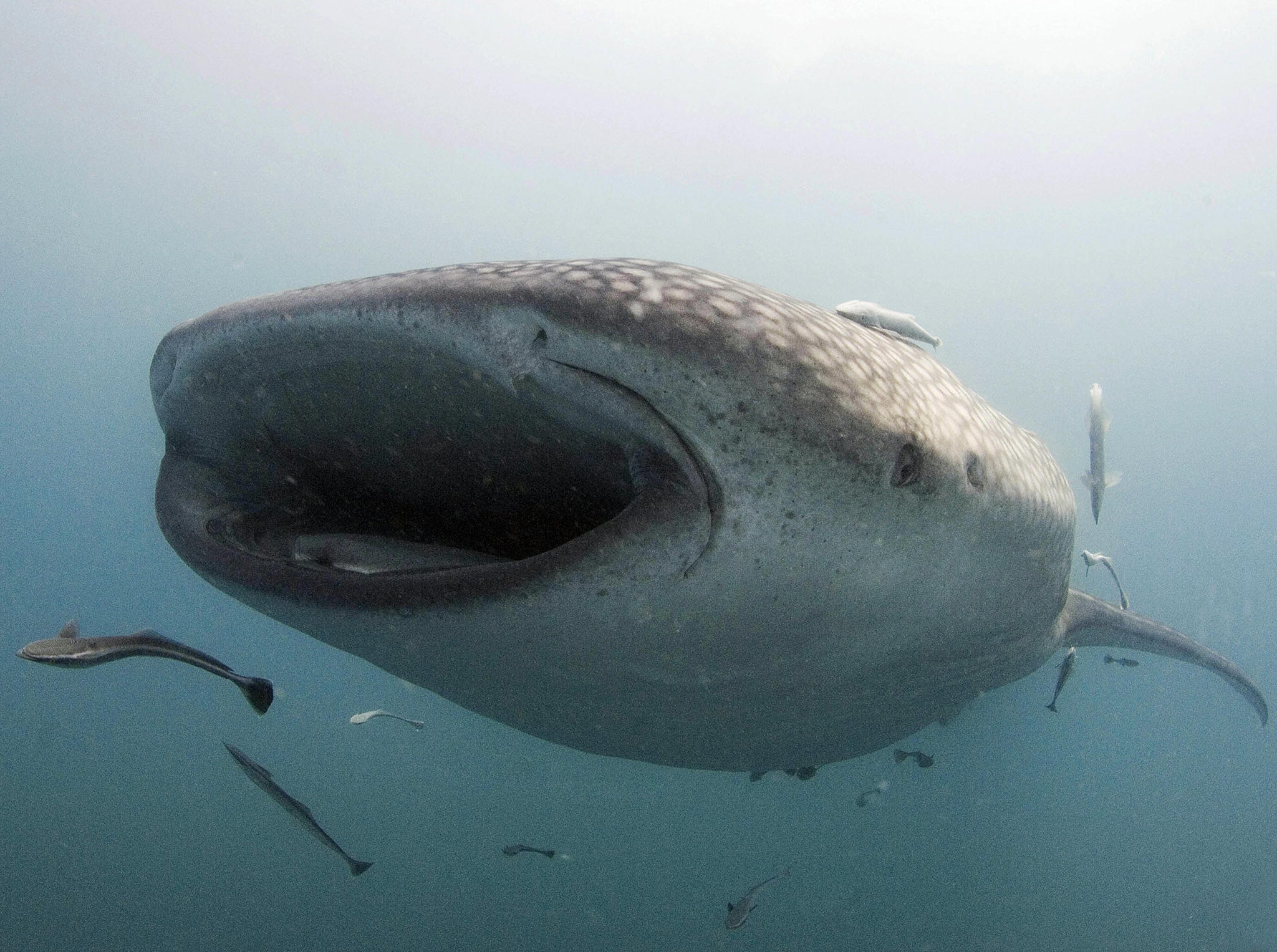Blast from air guns used in hunt for oil killing plankton and threatening marine ecosystems, scientists warn
The use of seismic surveys of the seabed – described as 'dynamite-like blasts going off every 10 seconds for weeks or months on end' – has 'enormous ramifications' for ocean health

Air guns used to explore for oil below the seabed appears to kill off vast amounts of plankton and krill – upon which much of the marine food chain depends – up to 1,200m from the site of the blast, according to a new study.
The research was published shortly after the US National Marine Fisheries Service announced it was considering allowing oil exploration off America’s Atlantic coast for the first time to the outrage of conservationists.
The Southern Environmental Law Centre warned the air guns – compared to “dynamite-like blasts going off every 10 seconds for weeks or months on end” – would do “significant harm” to the fishing industry and endangered whales in the region.
The new study suggests the effects could be more devastating than previously thought – causing a major impact on zooplankton and other sea creatures including top predators.
Writing in the journal Nature Ecology & Evolution, the researchers, from Australia, said: “Zooplankton underpin the health and productivity of global marine ecosystems.
“Here we present evidence that suggests seismic surveys cause significant mortality to zooplankton populations."
In test firings of the “intense, low-frequency, acoustic impulse signals” used to look for oil, they found the amount of zooplankton decreased by an average of 64 per cent within an hour.
They also found a two- to three-fold increase in dead adult and larval zooplankton after firings.
“Impacts were observed out to the maximum 1,200m range sampled, which was more than two orders of magnitude greater than the previously assumed impact range of 10m. Although no adult krill were present, all larval krill were killed after air gun passage,” the researchers wrote.
They spelt out the effects of seismic surveys in no uncertain terms.
“The significance and implications of potential large-scale modification of plankton community structure and abundance due to seismic survey operations has enormous ramifications for larval recruitment processes, all higher order predators and ocean health in general,” the researchers said.
“There is an urgent need to conduct further study to mitigate, model and understand potential impacts on plankton and the marine environment, and to prioritise development and testing of alternative seismic sources.”
In April, Donald Trump signed an executive order designed to increase offshore drilling for oil and Ryan Zinke, the US Interior Secretary, recently told the oil industry that they should be “excited” by the administration’s plans.
In 2015, the Obama administration revealed it was considering plans to allow oil exploration in the Atlantic but announced last year they had dropped the idea.
The US area of the Atlantic is estimated to have some 3.3 billion barrels of recoverable oil and significant amounts of natural gas.
Responding to the paper, Mick Borwell, industry body Oil & Gas UK’s health, safety and environment policy director, said: “Any potential impact of anthropogenic sound, including that created during seismic surveys, on marine organisms is an issue the oil and gas industry takes seriously.
“It is currently the subject of a large number of studies on sound source characterisation and propagation, physical and physiological effects, behavioural reactions and biological significant effects.
“This also covers mitigation and monitoring and research tools. This is a long-term project and research is continuing.”
Join our commenting forum
Join thought-provoking conversations, follow other Independent readers and see their replies
Comments
Bookmark popover
Removed from bookmarks